Disclosure: Privacy Australia is community-supported. We may earn a commission when you buy a VPN through one of our links. Learn more.
Cheap Stock Brokers in Australia

Finding the right stock broker is never easy, but it does not have to bankrupt you.
If you are an Australian looking to get into the stock market, then a stock broker will be more important for you than a person of almost any other nationality. But it will also benefit you more to get one too.
Why? The reason is simple: Australia is considered a modern-day hub of eCommerce.
Table of Contents:
- What Trade Advantages Does Australia Have
- How Does a Broker Capitalize on These Trade Advantages
- What Brokers Should you be Dealing With
- 1. Interactive Brokers – Best Overall Cheap Broker in Australia
- 2. Tastyworks – Best Cheap Commissions
- 3. Stake – Best Trade Network
- 4. IG – Best US Shares Broker
- 5. CMC Markets – Best CFD Trading
- 6. Commsec – Best Knowledgebase
- 7. Westpac – Best Personal Banking Broker
- 8. Nabtrade – Best Margin Trading
- 9. BellDirect – Best Day Trading Broker
- 10. eToro – Best Trading Platform
- Conclusion
What Trade Advantages Does Australia Have? 🇦🇺️

Consider how trading is done these days. Most trading is done over the internet.
As you probably know, sending any information over the internet means sending that information either by a wire or over the air.
If it goes by a wire it travels between countries by wires laid across the ocean. And if it is transmitted over the air then it is sent between a network of satellites in the sky.
These means of moving data might make it seem like the data can go anywhere instantly, but the truth is that being physically closer to a country matters a lot.
If you track a signal going to and from the New York and London stock exchanges, for instance, it will go slower than if you tracked the same signal between New York and Boston. Disregard technology and assume the means of transmitting the signal are exactly the same. How does this impact trading?
Now imagine that those signals are sending trades. But not only are they sending trades, but they are sending trades all day, every day. You are going to be able to trade with Boston far more than you trade with London. The same applies to Australia and Southeast Asia, but also Africa and South America.
In short, Australia has a trade advantage due to being adjacent to all of these continents. It might not be the closest to any of them, but it is second closest to all of them.
How Does a Broker Capitalize on These Trade Advantages? 👨💼️
Brokers work in one of two ways:
- You give them money to trade with and they trade on your behalf.
- They give you a license to a trading service and you trade with their connections.
Both methods take advantage of Australia’s unique position in the eCommerce economy in different ways. Neither is better than the other. Choosing between the two comes down to your risk preferences.
Giving the Broker Money to Trade With
When you give them money to trade on your behalf, you are entering into a contract with them that you will pay them both a service fee before and a commission fee after they work. The service fee pays them for their time while the commission fee pays them for how successful they were on the market.
In this contract you can also dictate what they invest in. Just keep in mind that the more you dictate to them, the less likely they are to be able to get returns. Most times, they know more than you about the market. That means that if you tell them to take a bad investment, you disallow them to make money.
Getting a License to a Trading Service
If you instead opt to get a license from them and trade for yourself, then you will be using the same software that they use. They will usually still take a commission fee, so be sure to take a look at the contract they give you and check how much they plan to take from you, as some brokers take a lot.
What Brokers Should you be Dealing With? ➡️

Now that you know what strengths you are working with, you can start looking for a broker that makes use of them. So, what are the best cheap stock brokers in Australia?
To answer that question, we took a look at a ton of them and came up with this list of the top 10.
1. Interactive Brokers – Best Overall Budget Broker in Australia
Interactive Brokers is basically the gold standard of cheap stock brokers in Australia.
They offer low prices on both service fees and commissions, as well as affordable licenses. The best part about their prices, however, is their transparency. Too many cheap brokers will try to hide their prices.

Usually this happens by a broker hiding their prices in their contracts. They will have an upfront offer, usually their service price, but will not mention their commission fee except in the fine print.
Interactive Brokers goes a long way to detail exactly what is going on with every service fee, commission fee, transaction fee, and so on. Keep in mind, that does not mean that all of these are large. Quite the contrary—for all the options Interactive Brokers gives you, they are a remarkably affordable broker.
What it means is that if they have a price that looks too good to be true, they put the effort into telling you exactly why it is true. This is part of what helps them stay honest and reliable.
Their Regulatory Body
Going forward, you will notice that all Australian brokers have a regulatory body attached to them. For most (if not all) brokers actually based in Australia, this will be the ASIC (the Australian Securities and Investments Commission). But this will not always be the case for foreign brokers operating in Australia.
In the case of Interactive Brokers, it is indeed the ASIC that oversees their operations. This is good, as the ASIC is well aware of Australia’s advantageous position in eCommerce.
Other nations in the Oceania region have not protected their citizens or businesses from predatory operations hailing from the northern hemisphere nearly as well as the ASIC has.
What They Trade In
Interactive Brokers is an online broker that trades in stocks in all their forms. That means they trade in shares, ETFs, options, and futures. They also trade in some currencies and cryptocurrencies, but not all.
Of particular note is the absence of CFD trading. CFD trading is pretty niche, but you will have to either look elsewhere or make those trades yourself if you want Interactive Brokers to help you with them.
All in all, Interactive Brokers offers more than almost any other cheap broker at a competitive rate.
Read our in-depth review of Interactive Brokers for more detailed information.
Pros
- Transparent about their low prices
- Well regulated and honest
- Trades in most securities
Cons
- Lacks CFDs
- No trades that don’t have commissions
2. Tastyworks – Best Cheap Commissions
When talking about regulators, we mentioned how brokers that are not based in Australia would be regulated by different governmental bodies. Tastyworks is a good intro to that, as it is based in the US.
One of the first things you will notice about Tastyworks is its website. Much of the information it delivers is delivered in a rather…

High impact way. What you might glean from all of the red, white, and black contrasting infographics is that not all of the trades you make with them have commission fees.
Specifically, most trades you do will have an extremely low opening commission (the “service fee” mentioned earlier) as well as little to no commission fee after the fact.
Stocks and ETFs will have neither a service fee nor a commission fee. This can lead one to wondering if Tastyworks is legit. After all, they are American. And they have a website that seems designed to distract you. On top of that, they make offers like $500 free for joining, and promises of Teslas for trading.
While all of this is good reason to suspect something is amiss, we found nothing to indicate that their business is doing anything unfair to its clients. You get to keep the money you make from trades and there is no fine print tying it up in their hands after you were the one who earned it.
This is what brokers usually do to scam people, and Tastyworks is clear of that behavior.
How do They Do Business?
Tastyworks is regulated by the SEC, or the Securities and Exchange Commission of the United States. Now, lots of people have lots of opinions of the US government, but if one positive thing can be said for them it is that their financial bureaucracy is hard to escape for a smaller broker like Tastyworks.
They are smaller and looking to expand, hence why they have so many reward programs (most of them only available to citizens within the US). That smallness means they do not have perfect access to the markets of the world, but they do have access to Wall Street, which is just about good enough.
They trade in most types of securities, although once again CFDs are left out. They also omit commodities, which makes sense when you consider their size. They have a lot of low maximum trades for things like foreign currency and cryptocurrency as well. This is likely to incentivize people to trade rapidly, either with brokers or automated trade. In either case, some people might be turned off by not being able to bet big on their investments.
Pros
- Low service and commission fees, sometimes no fees at all
- Secured by the SEC
- Lots of reward programs, even for non-Americans
Cons
- Obvious startup business
- Lacks full suite of trade options
3. Stake – Best Trade Network
Stake is a broker that is a bit hard to pin down, ironically. They serve both the US and AUS markets at the same time, as they are the product of a merger between an American and Australian broker.
This is important for understanding how they work, as they have different prices for Australian clients than their prices for American clients. Generally these prices are higher, but only slightly, and still cheap.
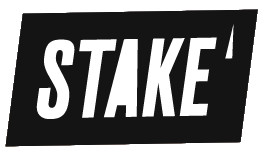
For instance, their American service fee is $0. “Free” is ideal, but what about their Australian service fee? In that case it is $3 AUD. That is not a whole lot more, and it you are getting the same market.
Essentially, you are paying for the ability to connect to the New York Stock Exchange. This is generally a connection worth paying for. Remember how Australia is located nearby most markets? Well, the one market furthest away from Australia is, sadly, the biggest stock market on the entire planet.
Luckily, because it is so big you do not have to be very close in order to get access to it.
That is why the price of entry is just $3. That is $3 no matter how much you end up trading. From $1 trades to $20,000 trades, they all end up entailing a service fee of $3.
But at this point we know better than to settle for a good service fee. What about their commissions?
Are Their Commissions Bad?
We mentioned before how most companies will hide their commission fees in their paperwork. This is one such case, although in this case they are not hiding anything that is all too nefarious.
Stake will require transfer fees if you are doing business on the New York Stock Exchange, as well as small fees for filling out tax forms on their end of things. For the most part, these will end up taking no more than a few pennies off of any given trade that you do.
If you use an automated trader to do thousands of trades a day, then those pennies will add up. But for most people, those pennies will mean basically nothing.
What Securities do They Have?
Stake focuses on stocks and ETFs. That includes options, futures, and CFDs (finally!). They do not have commodities or cryptocurrencies available at this time, nor do they provide you with tools to get them.
Use Stake if you are looking to trade between the Australian and American markets. Their market network is second to none, held back only by its limited access to more niche securities.
Pros
- Low service and commission fees
- Cheap access to big markets
- Extremely user-friendly
Cons
- Limited securities
- Contracts can be dense and hard to read
4. IG – Best US Shares Broker
Trading international shares is one of the main reasons people seek out a stockbroker in Australia. The Australian Securities Exchange is lucrative, but for many people, bigger is better when it comes to trading.
It is for this reason that people seek out brokers like IG. Part of the StockBroker.com network of brokers, IG combines three things to make it easy to trade both Australian shares and US shares:
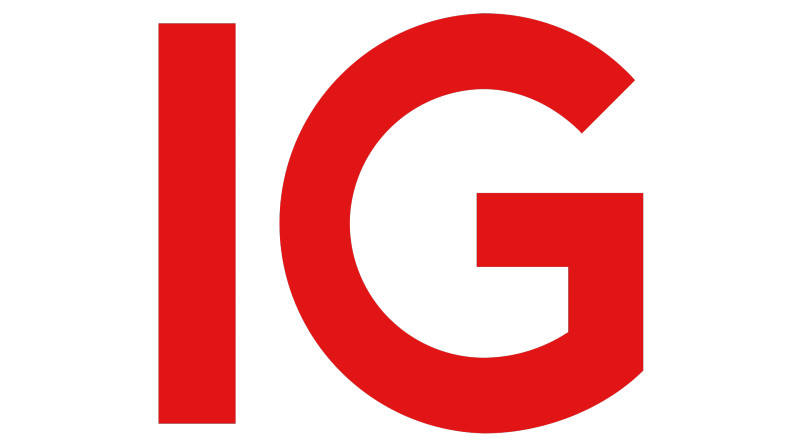
- Easy and fast access to US markets
- Analytics and alerts that you can customize
- No commission fees on US shares
Interestingly, they do require commissions on Australian shares. This will turn a lot of people off, but the commission is $5 for your first three trades of the day and $.05 for every trade after that.
In short, they have commission fees for Australian shares, but not in a huge amount.
Regardless, this does mean that the broker incentivizes you to invest in the American market over the Australian market. Some people are going to find this problematic, but that is what others are here for.
In any case, there is evidently more than just good commission fees helping you trade here. The big draw that we found is the customizable alert system. This is a big deal since the American market is on the other side of the planet.
That means that most of the biggest changes in the American market will happen when most Australians are asleep. Customizable alerts mean that you can get in on a market change as soon as it happens.
Responding to the Market Early
The advantage these alerts afford you cannot be overstated. Many trading platforms and apps actually lack the ability to set alerts because they believe it could cause market instability. The thinking is that if everyone suddenly starts responding immediately to market changes, the changes will happen too fast.
This immediately raises the question of “Too fast for whom?”
Because the answer to that question seems to always be “Too fast for the old men running hedge funds,” people have been disassociating themselves with this type of thinking for years now.
You can set alerts for when the New York Stock Exchange opens and closes, as well as reminders of how certain share prices are doing. Naturally, you can set alerts for when the values of your own trades either appreciate or depreciate. And you can set alerts for when certain shares cross certain thresholds.
That last one is what most people look for. The idea here is that you are looking to do one of two things: Either you get an alert when something is expensive enough and sell it, or you get an alert when something is cheap enough and you buy it. This is the kind of alert some brokers are afraid of.
Use IG if you want to trade primarily with the US market in a fast and responsive way.
Pros
- Easy to use
- Great alert customization
- No commission fees for American trades
Cons
- Deals mainly in stocks, lacking other securities
- Not great for trading Australian stocks
5. CMC Markets – Best CFD Trading
Let’s not kid ourselves: Most people get into trading stocks to get rich. Approaching the market and the practice of trading on it in this way has an impact on everything a person does and looks at.
We are not here to judge. This is something that we bring up to acknowledge it and talk about it, not to refute it or support it.
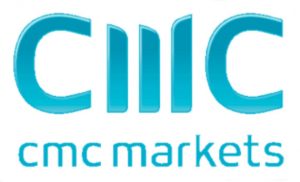
The important thing is that if you are this kind of trader, that you go in knowing that the risks are higher. You are not looking for a steady paycheck, you are looking for a lottery ticket.
That is why many people seek out CMC Markets for trading. They specialize in CFD trading. You may have noticed that there are many brokers that skip over CFDs. In fact, even when they have every other kind of security available, they will still not trade in CFDs. There is a reason for that, and it is about risk.
Why are CFDs Risky?
The reason CFDs are naturally risky is because they are always concerned with the future rather than the present. CFDs work by establishing a contract where you pay for a stock at a certain price in the future.
That price will usually be lower than the current value of the stock. This creates an immediately oppositional relationship between the buyer and the seller of the CFD. If you establish a CFD for less than the current value of a stock, you are saying that price of the stock will fall below that later on.
Someone will only take you up on that if they agree with you. But imagine that you are the buyer and not the seller. It is totally possible that someone will lie to you and tell you it is going to fall when it will not. This is why the relationship can be antagonistic.
How Does CMC Markets Specialize in CFDs?
CMC Markets offers some of the most streamlined CFD trading tools on the market. CFD stands for “contract for differences” after all, meaning that you need to write a contract to trade them.
Or you could have your broker write the contract for you. That is what CMC Markets will do. And because everyone knows that they are the broker to go to for when you want to trade CFDs, they will also connect you with other traders looking to trade in this security.
None of this mitigates the risk associated with CFDs, but as we said before, not everyone wants to mitigate that risk. Without the risk, you lose the chance of a big payday.
CMC Markets instead offers clear lines of communication between traders. This way the relationship between buyer and seller can be a bit less hostile, simply by making it easier to talk through trades.
Pros
- Specializes in CFDs
- Access to other securities as well
- Easy to use and communicate with
Cons
- Still a risky security
- Small and incomplete knowledgebase
6. Commsec – Best Knowledgebase
People looking for cheap brokers are usually people who have very little experience with the market.
With so much money flowing through the market and such a Darwinist culture around it, entering the market for the first time can be scary. It can feel like you need to show up knowing everything.
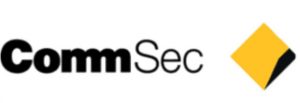
Commsec is a broker that has been around for 20 years and knows that this is simply not how most people interact with the market. Most people are “retail investors”. That means that they do not have a formal education in trading stocks, and that they usually use their personal funds on small investments.
Commsec designs much of its user experience around the retail investor. The core of this is their knowledgebase. A good knowledge base is the backbone of a broker that looks to integrate new traders.
What Their Knowledgebase Covers
You can take one look at the Commsec knowledgebase and immediately know that it is made for beginners. It starts with the absolute basics: What shares are, why you should invest in them, and how.
It expands its lessons to include examples, multiple choice quizzes, and then goes on to introduce other securities. The crux of its information is focusing on the “true logical statements”. That is, the questions that start with why, when, how, what, and who.
This means they tackle questions that a person who has never invested and does not yet have an interest in doing so will ask (“Why buy shares?”) as well as questions a person who is interested in investing but has not yet figured out how to do it might ask (“What is the cost of shares?”).
Commsec teaches in a way that is easy to understand, easy to navigate, and most importantly easy to implement for the retail investor who is just getting their foot in the door for trading.
Commsec’s Securities
Due to being so beginner-friendly, the securities Commsec has available are understandably limited. It has shares, ETFs, and options available, but no foreign currency, crypto, commodities, or CFDs.
It is clear from looking at their investment tools that this is by choice, not by inability. Commsec connects to an impressive number of markets for an Australian-based broker, so they could trade in all of those other securities if they wanted to. But all of those other securities are known to be risky.
Use Commsec if you want a broker that will limit you. Not everyone wants this, as many people get into the stock market wanting a trial by fire that they have perfect control over.
But for a lot of retail investors that are totally new to the market, Commsec can feel like the best option for how much it does to make your trading experience safer and easier when you have no experience.
Pros
- Extremely user-friendly
- Great knowledgebase for beginners
- Connects to a good number of markets
Cons
- Omits high risk securities
- Has commission fees
7. Westpac – Best Personal Banking Broker
Not every broker is going to be wholly focused on the stock market. Many are, and that is what most people are looking for, but it is just as likely that you are looking for a cheap broker of home loans.
That is what Westpac provides. Through Westpac you can still deal in the market. But you can also situate your finances in much more stable ways, like refinancing loans and retirement funds.

The great thing about combining basic banking with stock market trading is that you can then integrate the two of them into a single income plan. We mentioned earlier how retail investors operate differently than professional investors. Well, one of the main differences is that they make growth investments.
Growth vs. Income Investment
There are generally recognized to be two strategies for investment: Growth and income. Income is the one that most people hear about, and it is the one that most professional day traders employ.
Income investment operates on the classic “Buy low, sell high” mode of trading. In this situation, you are trying to earn money every day through your investments. That means investing in securities that are volatile, whose turnover rate from increasing in value to decreasing in value can be less than a week.
Contrast this with growth investment. In the case of growth investment, you are investing in securities that are expected to grow in value over the next year or more. This usually means investing in a growth industry, which is an industry or company that has seen steady growth over the last ten or fifteen years.
Income investment strategies are all about making money in the short term. Growth strategies are about long term moneymaking, usually with the intention of filling up a retirement fund.
How Tying Investment to Banking Helps Growth Strategies
When you consider how banking works, you can start to immediately see why a growth strategy might be easily incorporated into how you do your own person finances.
To begin with, think of that retirement fund. People put their money in banks to see it grow. If your bank has connections with the stock market, they can find ways to help you grow your money even more.
The same principle applies to dealing with loans. There are lots of ways banks can help you strategize around your loans. One of the most popular is finding ways to make payments with dividends.
This is aided by the fact that Westpac has more than just stocks available. They also have foreign currency and cryptocurrency, meaning that your investments are not limited to the stock market.
Pros
- Diverse securities to tie in with your banking
- Access to other financial advice options
- Low commission fees
Cons
- One of the worst websites ever
- No knowledgebase to help you
8. Nabtrade – Best Margin Trading
Much has been said about the risks of CFDs, but trading on margin is a whole different level of risk.
That is why not many brokers do it, and those who do are usually meant to be total banking solutions.

What does it mean for a broker to be a total banking solution? Well, the short version is that they will only act as your broker if you are using them for normal banking to begin with. This is frustrating to some people, but keep in mind that they do not have to be your only bank. Just one of them.
This is a stranger notion to newer investors, but totally normal to people who trade as their primary source of income. And there are few brokers better for that sort of trading than Nabtrade.
Nabtrade is a bank and stockbroker that can help you manage your wealth. Essentially, you will use Nabtrade as a bank for the money that you wish to try and grow. That means your savings can sit elsewhere, while the money you store in Nabtrade can be your dedicated trading fund.
As mentioned before, brokers are hesitant to let people trade on margin unless they have collateral tied up with them in some way. Nabtrade offers margin to anyone who does business with their bank.
What is Margin Trading?
Margin trading is an income trading style where you buy a share that you could otherwise not afford by using a loan granted to you by a bank. You then pay off the loan using dividends from the share.
Imagine trying to buy an Amazon stock. Amazon stock is expensive. But because it is expensive, it is expected to grow. And when it grows, the growth it experiences is usually pretty substantial.
That means that you can get a loan of, say $4000 to buy a share in Amazon. For this example, imagine that you have to pay off that loan in ten payments of $440. Payments are rarely this big and interest is rarely so precise, but this is just an example.
If that Amazon share yields you $450 a month (again, an example) then you are making a profit. You make your loan payment and keep $10. That is a lot of risk for $10 though.
Most banks avoid dealing in margin because most new investors will expect large shares to yield them more than they actually will. Nabtrade will help guide you through finding a profitable investment.
Pros
- Great banking services
- Offers trading on margin
- Helps you maximize your margin trades
Cons
- Few options for securities
- Cannot trade without a bank account with them
9. BellDirect – Best Day Trading Broker
While cheaper brokers are generally meant to appeal to new investors, there are still some that focus on day traders. This means that they have tools, securities, and analytics for maximizing the profit you make in one day. Such is the case for BellDirect, a broker that has been around since 2006.
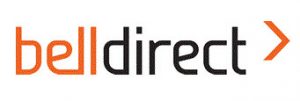
BellDirect offers a plethora of tools to help you stay on top of the market. That is the most important thing for a day trader: Since day traders are trying to make trading their primary source of income, they need to understand almost every facet of the market.
That means feeding you trading ideas, filtering ETFs, and offering tools for conditional trades with minimal need for communication. In short, it is a platform for the more advanced trader.
As a trade off that means that it has less of a knowledgebase in the way that a beginner would recognize. That does not mean that it lacks a knowledgebase—far from it. Just that it is highly complex and made to be used by people who know what they are doing.
This focus on skilled trading and in-depth analysis makes BellDirect an easy recommend for people who are looking to trade every day in order to pay their bills. It also has connections with plenty of markets and tons of different securities in order to help facilitate that.
Just know that it is not for someone who does not know what they are doing.
Pros
- Advanced tools for filtering and making trades
- Easy to use interface
- Lots of securities on hand
Cons
- Made for advanced traders
- Above average commission fees
10. eToro – Best Social Trading Platform
While eToro is best known for its trading platform and mobile app, it cannot be overlooked as a broker as well.
If you have not heard about eToro before, then you will be surprised at what it offers.
eToro is actually one of the biggest trading platforms in the world. That means that it connects to nearly every country, and certainly every continent, and offers every form of security from shares, to foreign currency, and just about every cryptocurrency under the sun.
Its interface is easy to use, and its community is massive. As you might expect from a platform that reaches all over the world, it has a huge community that is highly communicative.
Strong communication means that you can make trades that would otherwise be impossible.
But Why is it #10?
With all of those features and advantages you are probably wondering why eToro is all the way back here. This is especially true for anyone who has used eToro before. Shouldn’t it be #1?
Well, eToro is a great platform, possibly the best in the world. But as a broker it is right on the edge of being cheap and being moderately priced. A big part of this is the fact that it has both a minimum deposit for the account you use to trade on it, and commission fees.
Though it is worth noting that its commission fees are not all that high. The big issue with eToro’s commission fees is that they are complex. Every type of security has a different commission fee—some even have no commission fees at all. So, do your research to have an idea of what you will be paying.
Pros
- Connects with almost every market in the world
- Features every type of security
- Huge community
Cons
- Complex commission fees
- Minimum deposit on top of that
Conclusion 💡️
The main ways that a broker gets money out of you is the commission fees. Do not worry too much about minimum deposits, as those are mostly there to scare off bots. If you want to find a cheap broker, prioritize one that is transparent about how you are paying them for their services.
The more a broker tries to hide their fees from you, the more expensive they are in the long run.
You Might Also Like:




